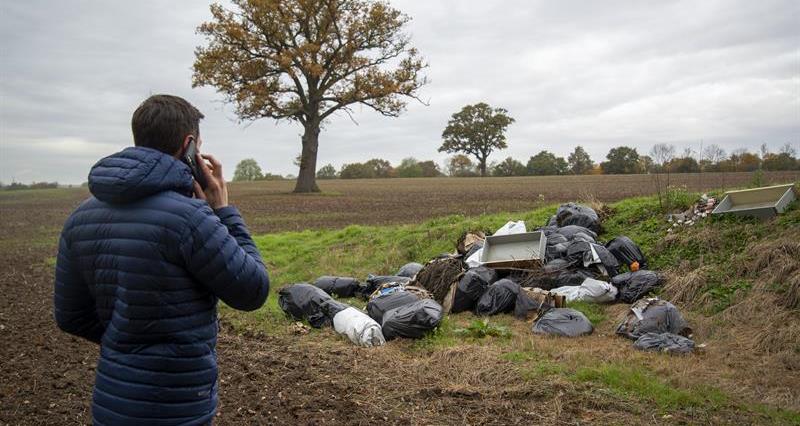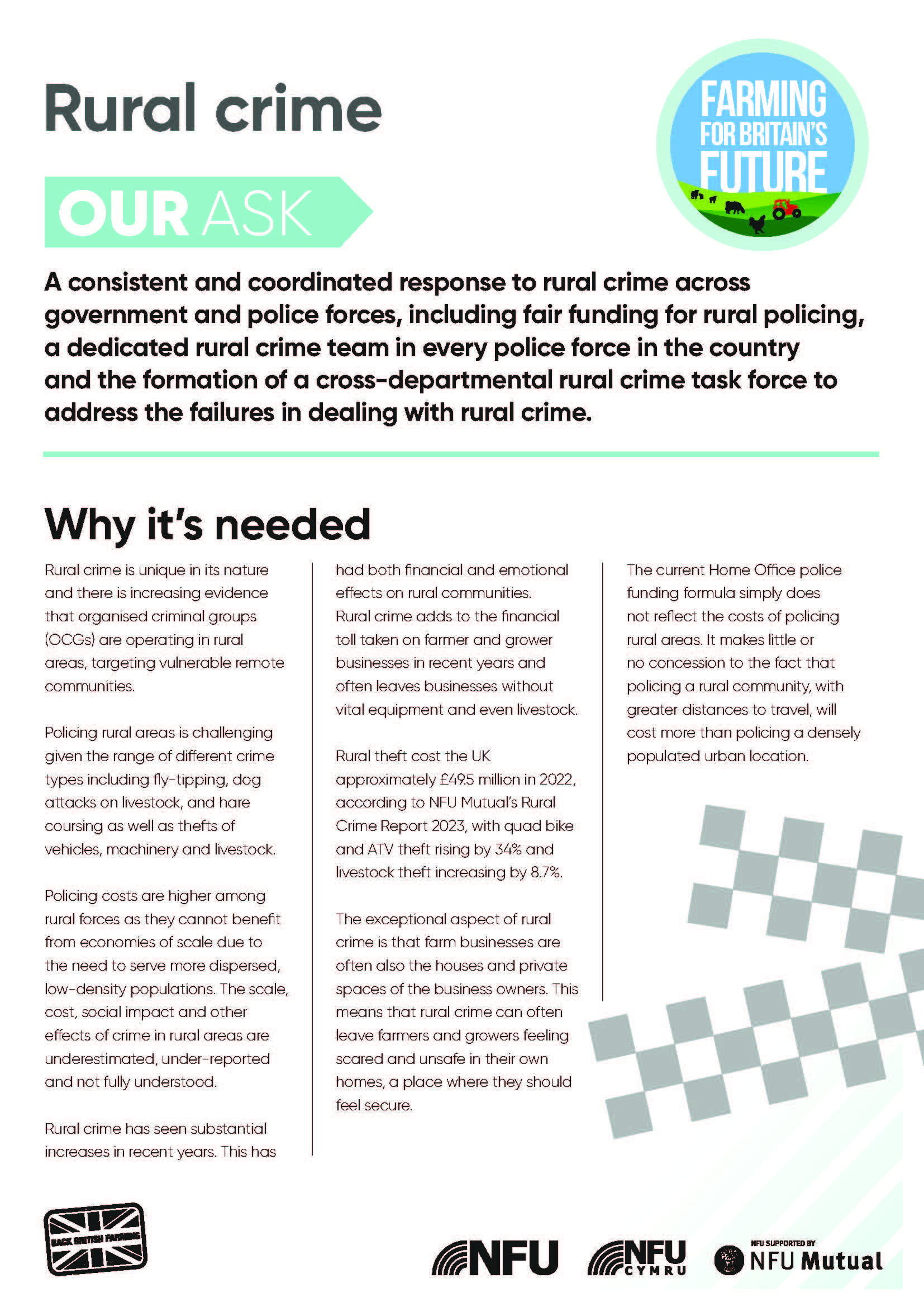The NFU has welcomed news that Defra will award a share of £1million to help local authorities combat fly-tipping.
This initiative, revealed on 18 May 2024, is a crucial step toward safeguarding our rural communities and protecting agricultural land from illegal waste disposal.
NFU Vice President Rachel Hallos said: "Fly-tipping continues to be a huge problem and one that plagues the lives of so many of us living and working in the countryside.
“Items such as worn out tyres, battered old fridges and bags of rubble are commonplace. But more and more our farms are being strewn with kitchen appliances, sofas and increasingly, industrial-scale amounts of rubbish such as builder’s rubble and hazardous materials.
“This is affecting farmers' efforts to produce food and care for the environment but is also taking a huge toll emotionally and financially, as the onus is on the landowner to remove the fly-tip from their land.”
“Rural crime must be treated as a priority issue. Farms, and wider rural communities, have increasingly become targets for criminals and this has left people living in the countryside feeling more vulnerable.”
NFU Vice President Rachel Hallos
What are the grants?
Fly-tipping is a persistent problem that disproportionately affects the countryside, where waste criminals often choose remote rural areas to dump their rubbish.
The new grants, which will provide up to £50,000 per council, are a vital resource in our ongoing efforts to address this issue.
The funding will support a variety of measures, including the installation of CCTV cameras, AI-assisted technology, and public awareness campaigns, all aimed at deterring fly-tipping and catching offenders.
How are the grants being used?
Among the recipients, the London Borough of Hounslow, City of Wolverhampton Council, and Cheshire East Council have outlined specific plans to enhance their anti-fly-tipping strategies.
For example:
- Hounslow will implement CCTV cameras with ANPR readers to better identify offenders and educate residents on proper waste disposal.
- Wolverhampton will expand its CCTV network and utilize AI-enabled SMART cameras, with a focus on their ‘Shop a Tipper’ campaign to encourage residents to report illegal dumping.
- Cheshire East will equip street enforcement officers with handheld devices to increase their efficiency and community engagement.
Rural crime must be a priority
The NFU has long campaigned for rural crime to be a high priority and the recent PCC (Police and Crime Commissioner) elections this May provided an added opportunity to shine a light on the impacts of rural crime. As a result of our campaigning work, 19,060 people added their signatures to an open letter, which will be sent to every single elected Police and Crime Commissioner, calling on them to prioritise rural crime.
NFU Vice President Rachel Hallos said: “Rural crime must be treated as a priority issue. Farms, and wider rural communities, have increasingly become targets for criminals and this has left people living in the countryside feeling more vulnerable.”
Ensuring crimes do not go unpunished
Defra Recycling Minister Robbie Moore has emphasised the severe impact of fly-tipping on communities and the environment, noting that the enhanced penalties and funding are part of a broader effort to ensure these crimes do not go unpunished. The increased fines and the reinvestment of these funds into enforcement and cleanup are significant steps forward.
The previous funding rounds have shown promising results. For instance, Hyndburn Borough Council's installation of fencing and gates, funded by Defra, led to a complete halt in fly-tipping in targeted areas, saving the council substantial cleanup costs.
Rachel welcomed government initiatives to combat the issue. “These include increasing the maximum penalty for fly-tipping from £400 to £1000 as part of its Antisocial Behaviour Plan, funding a new fly-tipping post within the National Rural Crime Unit and abolishing charges for DIY waste to be disposed of at recycling centres – although some charges still apply and booking systems can mean lengthy waits.”
Enhanced powers for council officers
“The NFU believes more can and should be done including better promotion of household duty of care to ensure the public are aware that their responsibilities for waste disposal is maintained to its final disposal point. We also want to see accreditation for all council enforcement officers to give them enhanced police-style powers to tackle fly-tipping and littering.”
The NFU also supports the additional reforms, including tougher checks for waste operators and the implementation of mandatory digital waste tracking. These measures are crucial in ensuring that waste is disposed of responsibly and traceably.
Councillors from various regions have expressed their commitment to using these funds to enhance their anti-fly-tipping efforts, underscoring the importance of community involvement and advanced technology in tackling this issue.
See our manifesto asks
Our manifesto
Our general election manifesto – Farming for Britain's Future – outlines our key asks of the next government to ensure farmers and growers can continue to deliver for the environment, economy and local communities while producing more of the great British food we all enjoy.



